NEWS


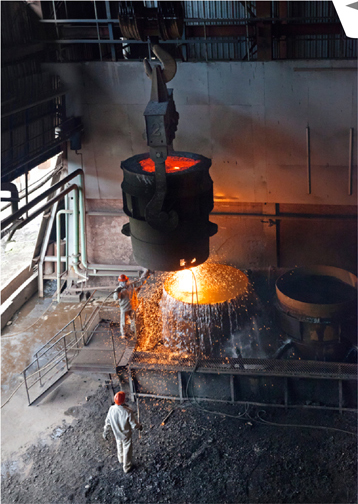
Left: At Codemin in Brazil, nickel ore smelting involves the burning of locally sourced eucalyptus wood chips. Used as a reducing agent in ferronickel production, they help to minimize greenhouse gases created during the process.
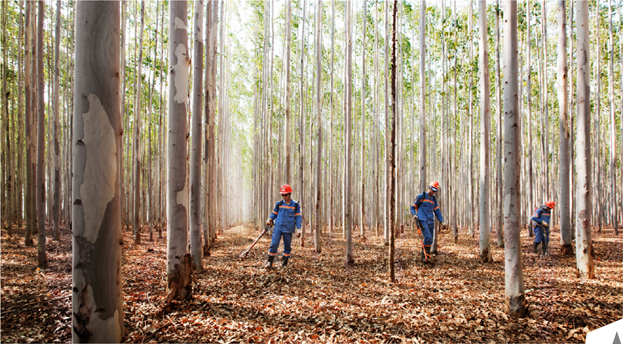
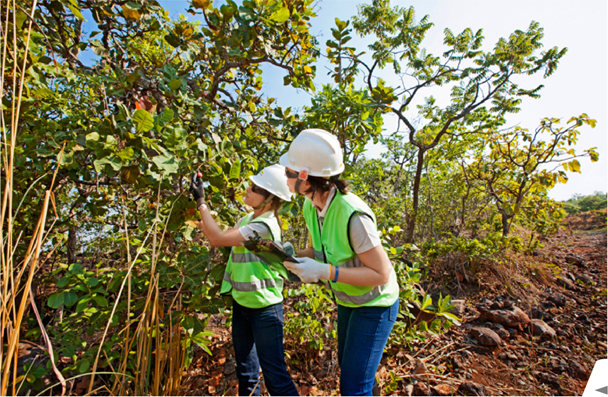
Above: The eucalyptus plantation at Horto Aranha provides sustainable wood chip material for Codemin. AngloAmerican grows eucalyptus in quantity, harvesting it in moderation and far exceeding the statutory requirement for maintaining natural forestation.
Left: Also in Brazil, nickel mining at Barro Alto is accompanied by crucial work to measure and improve biodiversity in the area. This helps minimise the environmental footprint of the mine during its lifetime, and lays the groundwork for reforestation once it has ceased to operate. Here, researchers are examining caju and jatoba fruits as part of a larger project to map indigenous plant species.
Right: In Barro Alto City, the focus shifts to AngloAmerican’s partnership with local government and Reprolatina, an NGO that promotes healthy lifestyles for young people, educating them about the risks of drug taking and unplanned pregnancy. At this meeting, Charlie joined volunteers and health professionals as they discussed the changing role of women in society.
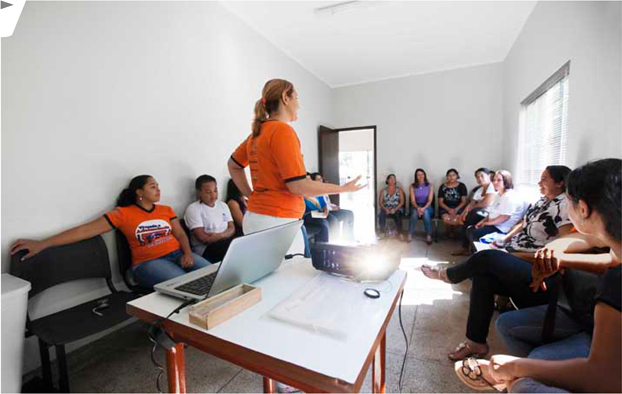
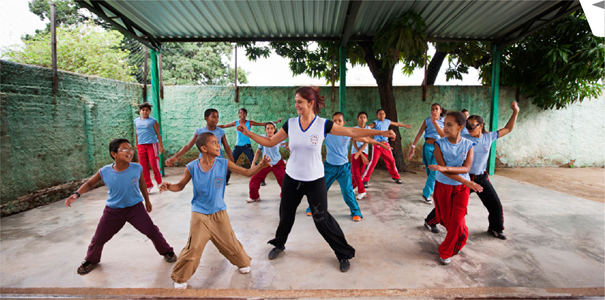
Left: Social responsibility is also high on the agenda at Codemin. Charlie travelled to the nearby city of Niquelândia, where the PAES project – which stands for Peace, Love and Social Education – offers workshops for 7-14 year-olds in literacy, IT, sex education, PE, music, dance and capoeira. This vibrant community project also aims to encourage a healthy lifestyle and respect for nature.
Right: In Tiara, Venezuela, Charlie witnessed the Loma de Niquel sustainability team in action. Their work included the organisation of community activities such as a dance school, nursery garden, and cultural and sports activities. At Los Bagres School, a young pupil is pictured as he helps his teacher to re-enact a traditional story for the rest of the class.







